‘Capital of Capital’: Miami CRE Titans Convene at CO’s South Florida Leadership Event
By Jeff Ostrowski May 15, 2023 9:00 am
reprints
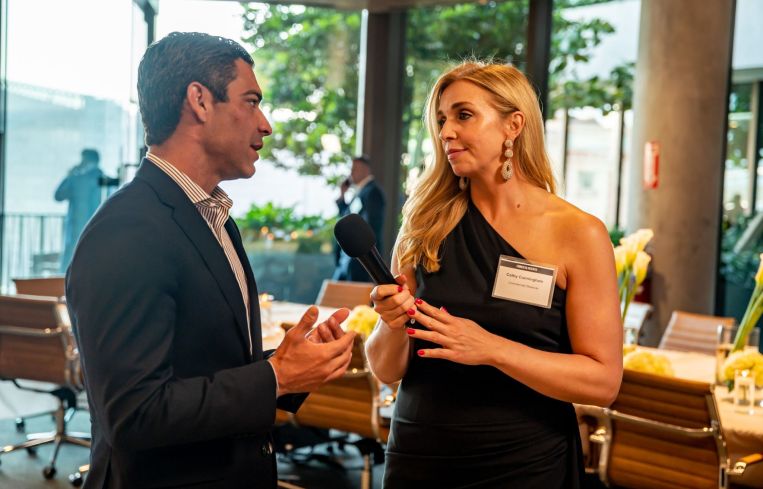
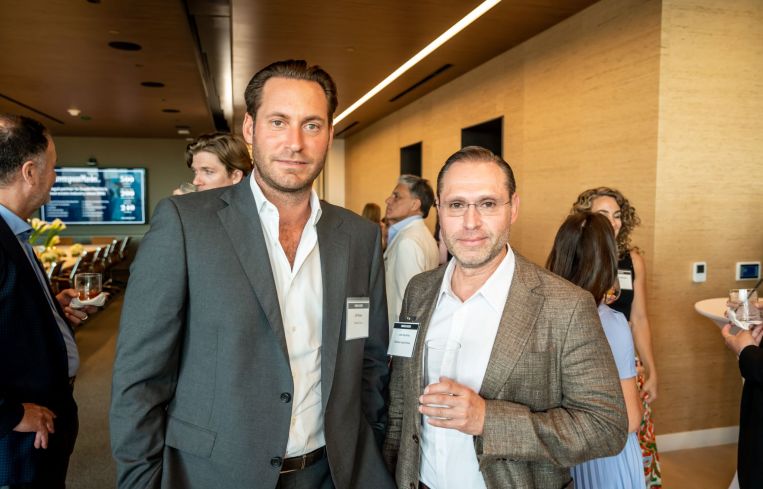
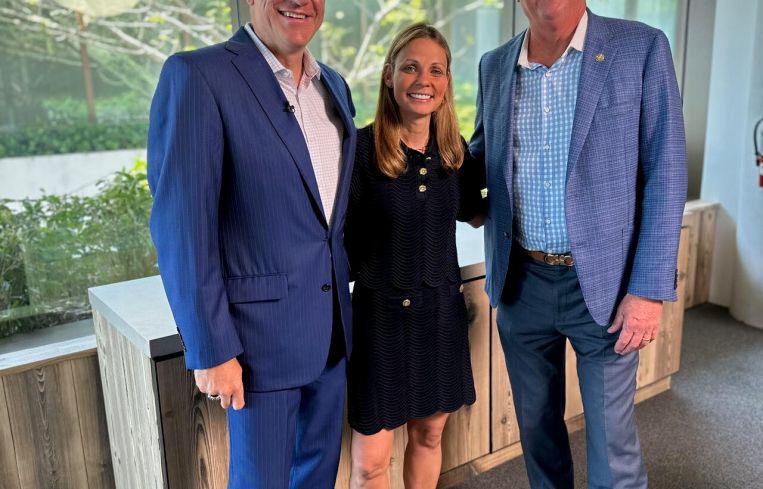

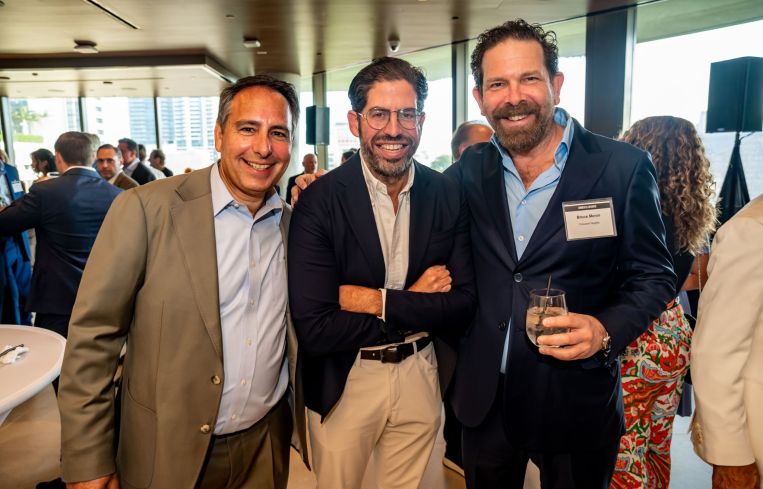
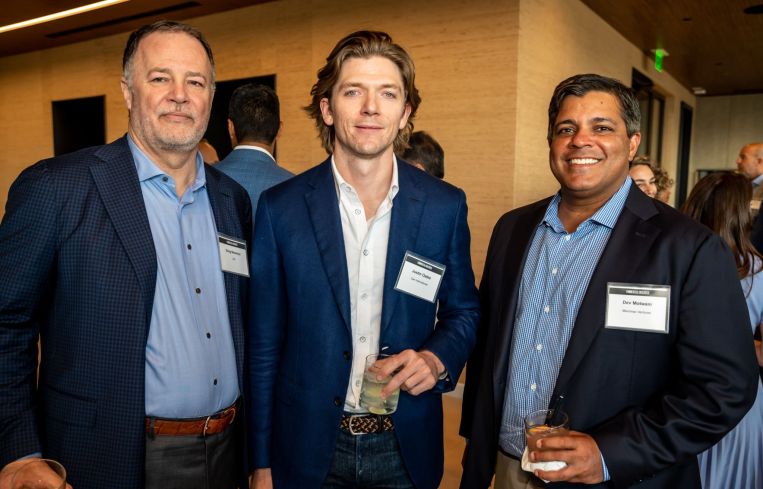

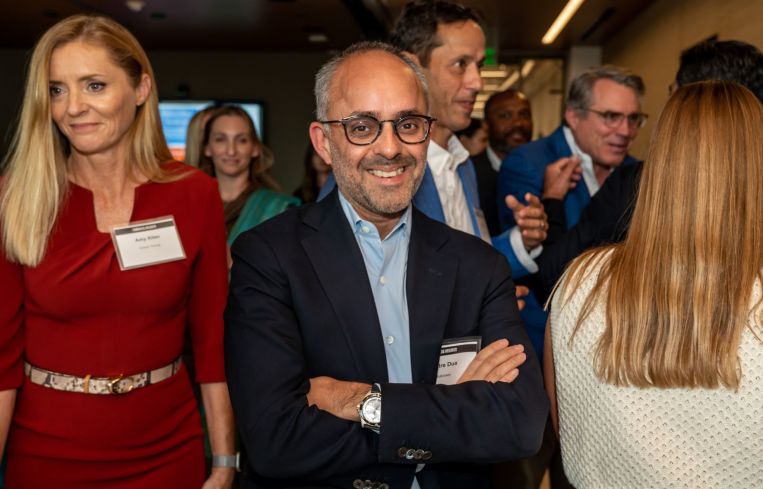
During the pandemic, Miami emerged as a major destination for real estate investors. Now that the global health crisis has faded and the U.S. economy faces headwinds, South Florida’s property market is doing the unexpected: Continuing to boom.
In a prominent example, a waterfront site in Miami is under contract after receiving multiple bids above $1 billion. That high-profile deal was just one of the reasons for optimism at Commercial Observer’s South Florida Leadership Reception, hosted Thursday night at Starwood Capital Group’s new headquarters at 2340 Collins Avenue in Miami Beach.
Among the attendees was David Martin, head of Miami development firm Terra. He leads the joint venture that put in the winning bid for the former home of the Miami Herald.
With an offer of $1.225 billion, Martin is under contract for the 15.5-acre parcel at 1431 North Bayshore Drive. That sum once would have been unthinkable for a South Florida land deal – the parcel sold in 2011 for $235 million. But Martin said the steep price is a sign of a maturing property market, combined with geographic boundaries that constrain development.
“When you think about Miami-Dade County, two-thirds of it is Everglades National Park – which is good,” Martin told CO. “That creates a lot of scarcity.”
The former Herald site is owned by Genting Group, a Malaysian casino operator that hoped to build a casino there. But that plan never materialized, and Genting last year hired Avison Young to market the parcel.
The property brought a number of bids, including five offers above $1 billion, said Michael T. Fay, principal and managing director of Avison Young’s Miami operations and head of the team representing the seller. Martin’s offer was the strongest.
“He stepped up, but he also sees all the potential,” Fay said.
The Herald site includes 800 feet of frontage along Biscayne Bay. And because the property is designated a Rapid Transit Zone, there are no limits on buildable square footage and no requirements for setbacks. Up to 8,000 units could be built there.
That’s an example of what Miami Mayor Francis Suarez calls the city’s “10x” potential – a capacity for greater density that could be unlocked by more permissive development regulations and less red tape.
“We can grow 10 times larger than we are in our physical landscape,” Suarez said during a discussion with Jeff DiModica, managing director of Starwood Capital Group.
Suarez touted the city’s rising tech employment, growing venture capital scene and declining homicide rate. He also said he presided over a turnaround of Miami’s messy budget, noting the city was running deficits when he took over.
“It was a broken Chevy,” Suarez said. “Today, we have the most reserves in our history and the highest bond rating in our history.”
The city is transforming into “a capital of capital,” Suarez said, repeating an oft-mentioned catchphrase. Commercial real estate leaders don’t disagree with that assessment.
“We have a lot of long-term capital coming here,” said Dev Motwani, president and CEO of Merrimac Ventures in Fort Lauderdale.
Motwani pointed to the pandemic as a “tipping point” that accelerated Florida’s growth – the U.S. Census Bureau said Florida had the fastest pace of population growth of any state from mid-2021 to mid-2022. The influx of people and a business-friendly regulatory climate helped transform the Miami region into a destination for business leaders.
“We always had the weather. We always had the taxes,” Motwani said. “But during the pandemic, people began to see this was a great place to live and raise a family.”
Remote work gave Americans the option to choose where they wanted to live. And many realized Florida’s schools and lifestyle suited them, Motwani said.
While South Florida continues to boom, some real estate leaders also are expressing a need for caution. After all, the Federal Reserve has raised interest rates at 10 consecutive meetings, and the U.S. economy could go into recession.
“We’re being super-careful on new acquisitions,” said Jordan Slone, chairman of multifamily juggernaut Harbor Group International of Norfolk, Va. “We’re looking for properties that can ride out the cycle.”
He’s targeting properties that are less than 3 years old, reasoning that they’re better positioned to prosper in tough times. Harbor Group owns 60,000 multifamily units and has acquired ParkLine Miami and Miro Brickell. Slone said the company’s apartment portfolio continues to perform well, especially in the boom market of South Florida.
“Rental increases have slowed down, but they’re still very healthy,” he said. “We have very high occupancy for all our properties.”
South Florida has been booming even as its location leaves it vulnerable to extreme weather. Five of the 10 costliest hurricanes on record have occurred since 2017, according to the Insurance Information Institute. And the region regularly floods – an April rainstorm inundated Broward County, forcing Fort Lauderdale-Hollywood International Airport to close for two days and snarling flights.
As someone making big investments in real estate in harm’s way, Terra’s Martin has been thinking a lot about water management. He’s experimenting with permeable pavers that would allow rainwater to seep into the ground rather than rush into storm sewers, and he’s toying with other ideas to make South Florida more resilient to weather.
“How do you incentivize private property owners to hold water?” Martin asked. “There’s an old way of planning, an old way of thinking, an old way of engineering. What resiliency needs is new ways of thinking.”
Other attendees included JP Perez and Nicholas Perez of Related Group, Gil Dezer of Dezer Development, Rebecca Fishman Lipsey of The Miami Foundation, Peggy Olin of OneWorld Properties, Brad Meltzer of Two Roads Development, Nitin Motwani of Miami Worldcenter, Justin Oates of Cain International, Joe Moinian of The Moinian Group, Miki Naftali of Naftali Group, Nicole Meyer of Kushner Companies, Dan Kodsi of Royal Palm Companies, Greg Newman of Bank OZK, John Crotty of Avison Young, Warren de Haan and Tony Fineman of ACORE Capital, Justin Kennedy of 3650 REIT and Andre Dua of McKinsey.
Jeff Ostrowski can be reached at jostrowski@commercialobserver.com.



